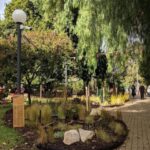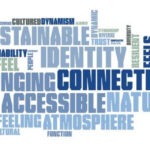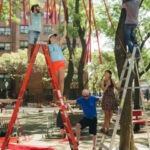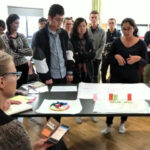One of the aims of the Place Agency project is to increase the capacity in students and industry to undertake authentic placemaking. That is placemaking that engages stakeholders in supporting them and the space they are linked to, to meet their needs, to create lively, viable, context appropriate, places of engagement and citizenship. Previous research showed that students entering placemaking work often did not have the engagement skills needed to be able to carry our placemaking. Further they often through their role was to present the solution, be the expert, rather than listen and co-create the solution with the stakeholders. Working with the industry and the literature competency needed where identified as: theoretical knowledge on place and placemaking, cognitive skills required for deep and meaningful placemaking (head), the affective skills required to connect to the community you aim to service (heart) and the practical skills to conduct not only the design but also the active community engagement and implementation of placemaking projects (hand).
To test the ability to provide these competencies research on the students was carried out where they were asked to fill out how their leaning had progressed through their studios and the placemaking fundamental subject. We also asked industry summit participants on their learning and feedback. This is the research and outcomes outlined here.
We are currently working on a series of publications that explore the learnings of our students in more depth; however, as a preliminary insight, the outcome sunflower self assessment has been enlightening. While on average, students have reported increase in skills all around head, heart and hand, it is the individual stories that bring depth to this data. Some students have reported remarkable increase particularly on the affective and hand skills for community engagement. Meanwhile, some selected students actually report a decrease in skills by the end of semester. Their reflective essays however, shed light to the fact that, this decrease is not due to an actual regression in their skill sets but to an increase of self-awareness. They have realised that they over estimated their skills at the beginning of the semester.
We will update this page as we get our publications running.








